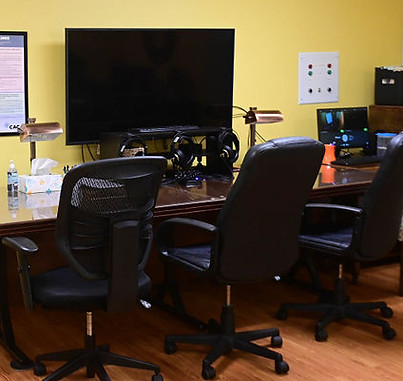1835 W Front Street, Lonoke 72086
501-676-2552


FORENSICS
Working together to minimize childhood trauma

What is a Forensic Interview?
A forensic interview is a recorded interview designed to elicit a child’s unique information when there are concerns of possible abuse or when the child has witnessed violence against another person. Forensic interviews are neutral, meaning the interviewer takes no part in decision making regarding the outcome of the case. They are there to listen to what the child has to say by using open-ended questions that explore all forms of maltreatment the child may have experienced and/or witnessed.
The forensic interview is conducted in a legally defensible, supportive, and non-leading manner by a trained professional. Interviews are observed by investigators assigned to the case in a separate room through a television connected to the interview room camera. These individuals can be from a variety of different entities to include Law Enforcement, Arkansas State Police Crimes Against Children, Division of Children and Family Services, OSI (Office of Special Investigations of the military), FBI and Homeland Security.
What We Want You to Know
While coming in for a forensic interview can sound like a scary thing, we work hard to make it a comfortable and easy experience for every child. It is our hope that your child disclosing information in the forensic interview while it is being recorded will limit the amount of questions they are asked by other investigative and prosecutorial entities. Our interviewers are highly trained to elicit information in the most sensitive and child-friendly manner possible.
The Interview Process
When you arrive at the Child Advocacy Center you and your child will be greeted at the door by one of our victim advocates and asked to wait in a child-friendly waiting room. The interviewer will come to take your child for their interview, while our victim advocate speaks with you. Our victim advocate will be able to answer any questions you may have, and provide you with needed resources such as counseling referrals, housing assistance, and more. After the interview, the investigators assigned to the case will generally meet with you for an informal interview, going over next steps and to give you their contact information in case you have any questions.
Who will see my child's interview?

The interview is watched through cameras by the investigators/team assigned to the case, meaning the interviewer is never unobserved with a child. Without a subpoena, interviewers do not disclose or discuss information with anyone outside of the Multidisciplinary Team. This team consists of professionals that investigate cases or provide services to families and children involved in a case. Keep in mind that none of the employees of the Child Advocacy Center take part in the investigation or making decisions regarding the case.
Can I go to the interview with my child?
Children cannot be accompanied by adults in the interview. The interview is child-lead, so your child will have control and every effort will be made to make your child as comfortable as possible throughout the process. In addition, children are never forced to talk about anything they do not want to.
What do I say to my child about coming to the interview?
Try to refrain from telling them it is a “doctor’s appointment”, as this can cause anxiety. Never tell the child they are in trouble, and let them know ahead of time they will be talking to someone alone. You know your child best. If your child is anxious about being alone please make a plan to put them at ease. Let them know that the person they are going to talk with has their best interest at heart and is there only to listen to them, not make decisions on what happens next.
Will my child have to come back for a second interview?
There are very rare times that a child may need an “extended interview”. This may be because the child has multiple allegations to talk about, the interview has exceeded time constraints, the child’s attention span is waning, or it appears the interview is taking an emotional toll on the child and therefore it is better for them to come back at a later time to finish the interview.
Child forensic interviews are an important part of any investigation, not only for professionals, but for the child. If you have more questions about forensic interviews, please contact us at (501) 676-2552.